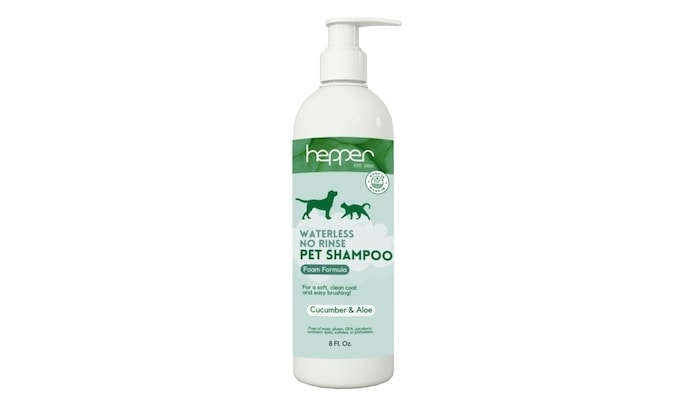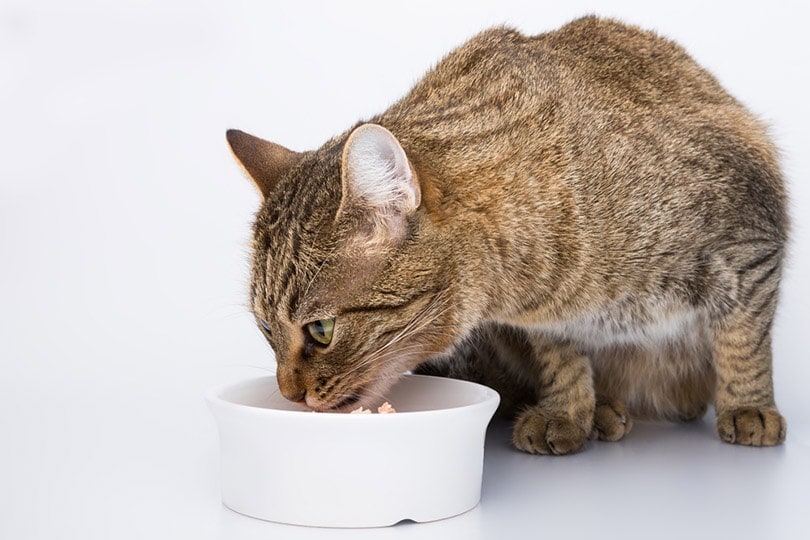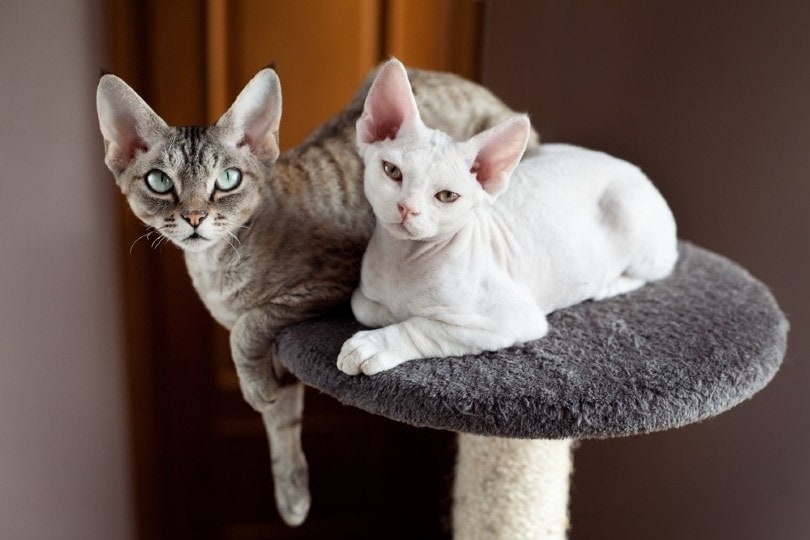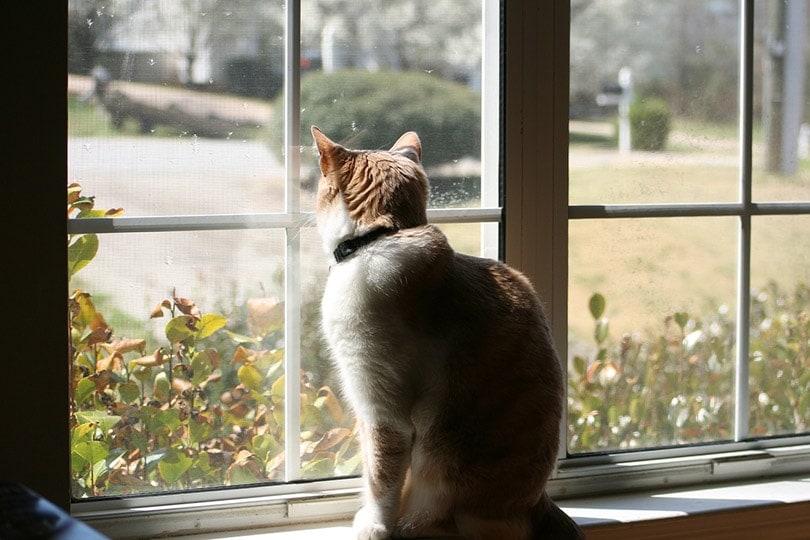How to Wash a Cat Without Shampoo: 8 Great Alternatives

Updated on
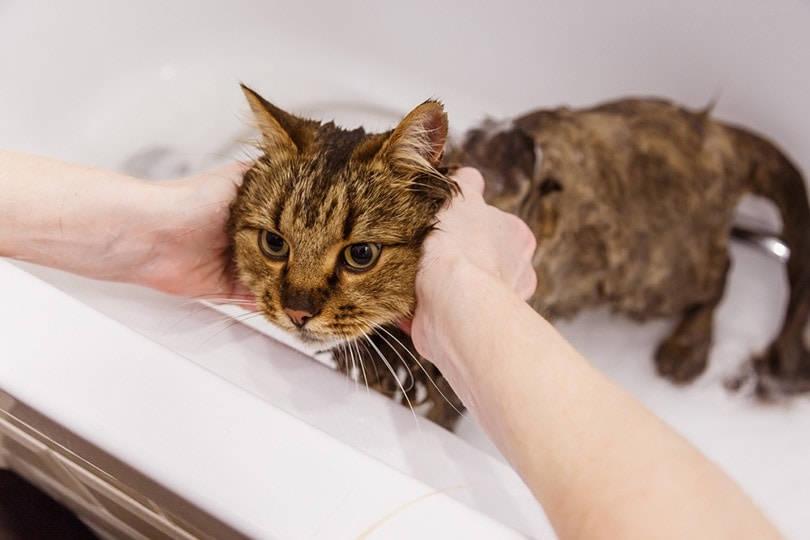
If you want to give your cat a bath, one of the best choices is to use shampoo formulated for cats. But sometimes, you don’t want to buy a whole bottle for one bath, and some cats hate traditional baths and cat shampoos. Cat shampoos have some important differences from the shampoos made for humans, but that doesn’t mean that you’re forced into buying them.
In fact, there are many products and techniques you can use to help your cat get clean in a pinch.
Top 8 Ways to Wash a Cat Without Shampoo
1. Waterless Shampoo or Dry Bath
If your cat hates getting wet, one of the best alternatives to cat shampoo is a waterless shampoo, like our Hepper No-Rinse Shampoo. There are many products you can use for this, from cornstarch to baking soda, but in principle, many dry food shampoos that will not hurt your cat in small amounts will make a dry bath effective, such as oatmeal. You can even buy commercial dry bath powders for your cat. To give your cat a dry bath, rub the powder into her fur and slowly brush it out with a fine-toothed brush until your cat is back to normal. Dirt, sweat, and stink will come along with it.
Dry baths aren’t always great for really dirty cats or cats that have gotten into dangerous substances, but they work great for a slight refresh.
2. Wash Wipes
Another water-free bath option is to use wash wipes to spot-clean your cat. This is a great choice if your cat is splattered in food or mud, and you just need a little help cleaning her up. We may be biased but our favorite wipes to use are our Hepper Wash Wipes.
Baby wipes are generally safe for cats as they do not contain harsh chemicals and are made for sensitive baby skin, but it is safest to use unscented wipes as not all fragrances are safe for cats.
3. Vinegar Baths
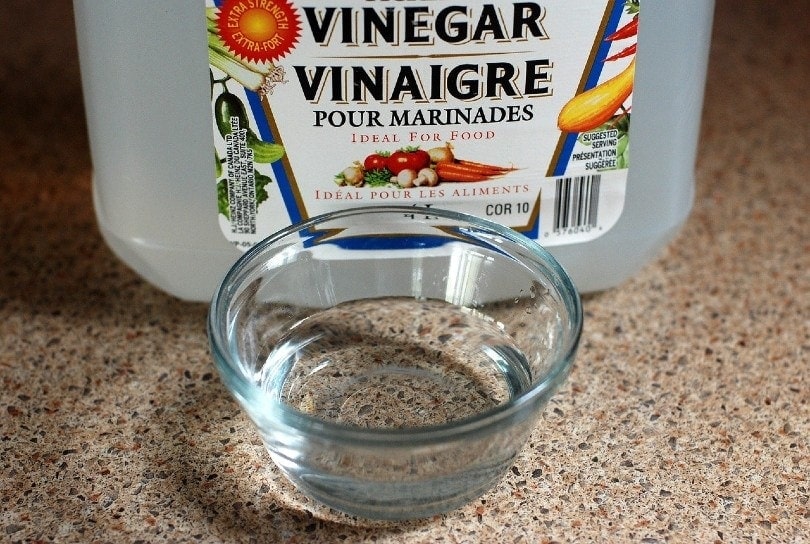
Vinegar might be a strong-smelling substance, but it’s safe for cats, and it can even be good for sensitive skin. You can mix vinegar baths with soap or oatmeal or use it on its own. White vinegar and apple cider vinegar are the best choices for cleaning. Only add a small amount of vinegar to the bath—just enough to give it a scent or no more than 10% of the water. This should be plenty to help your cat get clean, and the smell should disappear completely by the time your cat is dry.
4. Unscented, Neutral Soaps
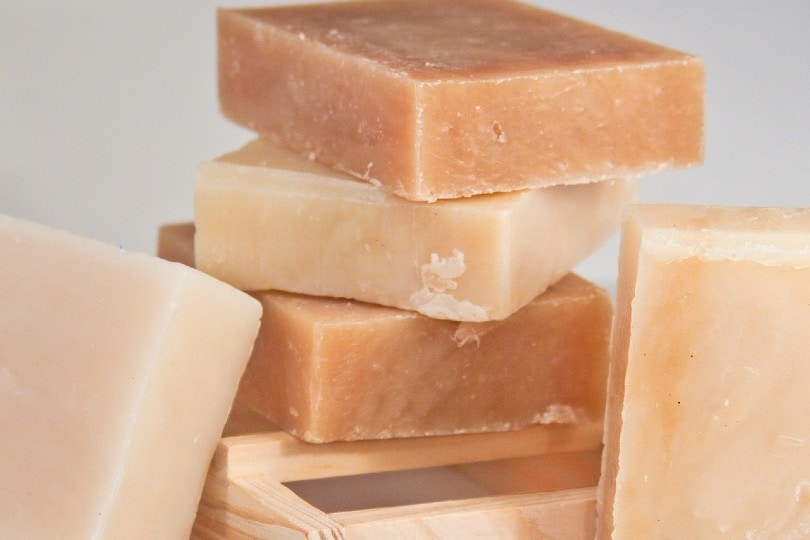
Household soaps are not ideal for your cat because they break down the oils in your cat’s fur, but if your cat gets into an oily mess, some soaps are better than others. Look for a soap that is pH-neutral and doesn’t have any added fragrance, like Castille soap. These soaps will dry out your cat’s fur and skin, but they should not cause reactions.
5. Dawn Dish Soap
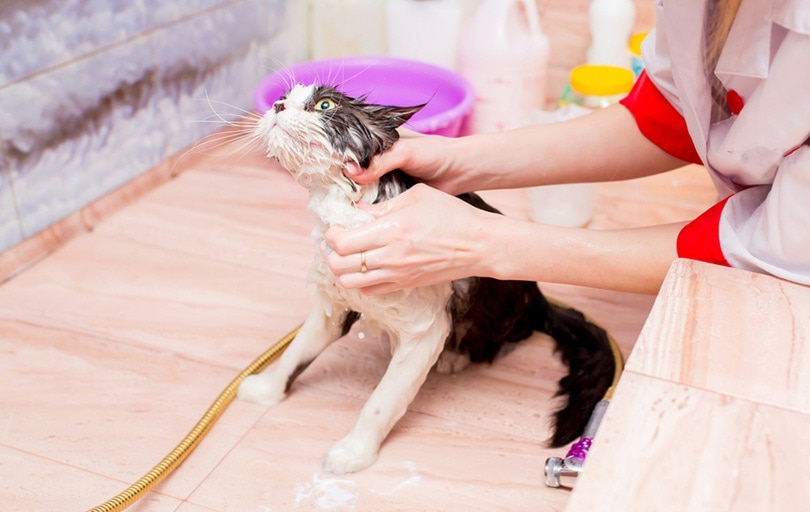
Dawn dish soap (blue) is one of the safest soaps for pets, making it a great choice if you need soap to clean up oily fur. In fact, Dawn dish soap is often used to clean up wildlife after oil spills! If you want to use dish soap, a little bit will go a long way. It will strip the oils from your cat’s fur, so it is best to use this as an occasional cleaner. If you bathe your cat regularly, a different cleaner or a combination of ingredients would be a better option.
6. Oatmeal

Oatmeal is one of the best options for soothing your cat’s skin and making her fur lush and silky. You can use oatmeal for a dry bath or a wet bath, depending on how you prepare it. If you use oatmeal dry, massage it into your cat’s fur and leave for a few minutes before combing it out. In a wet bath, oatmeal can be combined with vinegar, safe soaps, and even purpose-made cat shampoo to help rejuvenate fur and skin.
7. Baking Soda
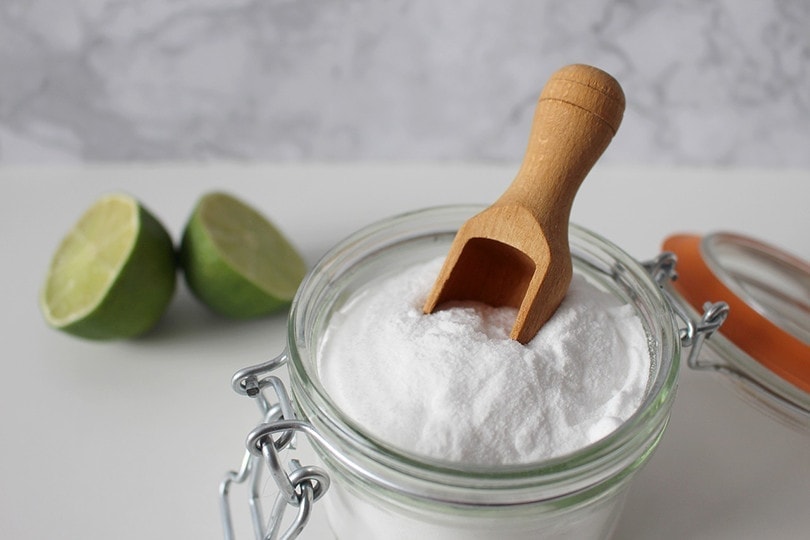
Baking soda is a dry-bath option that is effective in more than just texture. Because baking soda absorbs scents and oils, it is a great way to get the edge off a smelly cat safely. It can also be combined with other bath options. If you wash with vinegar, though, it’s best to keep the baking soda at a separate stage. Otherwise, the acidic vinegar and basic baking soda will combine, leaving you with a fizz that doesn’t help with cleaning.
8. Let Your Cat Clean Herself
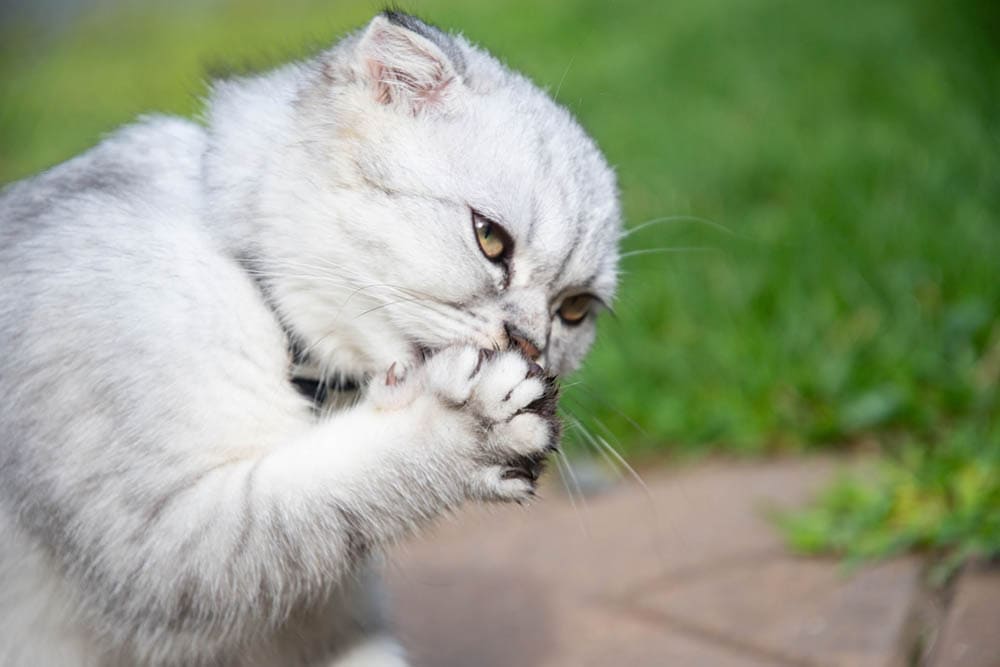
Let’s start with the obvious—not every cat can keep herself clean all the time. If your cat struggles with bathing or she gets into something that would be dangerous for her to clean off herself, you’ll need to help her out. But most cats don’t need regular baths. In fact, cats spend huge amounts of time bathing, and as gross as it sounds, their bodies are built to keep them clean. If you see your cat grooming regularly, you might want to reconsider whether your cat really needs a bath. And if she’s grooming and grooming but smells like foul kitty breath, you might want to get her checked for dental issues, not bathe her.
Why Avoid Human Shampoo?
You’ll notice that human shampoos aren’t on this list. Some shampoos are dangerous for cats, with fragrances or chemicals that damage their skin or can poison them if ingested. But even with baby shampoo and other less harsh shampoos, they aren’t the best choice for your cat. One of the biggest reasons that shampoos aren’t ideal for cats is that humans and cats have different skin pH levels. Our shampoo is formulated for our body chemistry, and it’s likely to irritate the skin of our feline friends rather than help.
Cats and Essential Oils
One of the biggest dangers to cats in commercial soaps and shampoos that aren’t formulated for cats is essential oils. For humans, essential oils are fairly safe, but all kinds of essential oils are dangerous to cats. That’s because they can absorb these oils through the skin, and their livers aren’t equipped to process them through their system. Essential oils just have a chemical makeup that’s dangerous to them, even if the scent itself isn’t a big problem. You should always avoid adding essential oils to your cat’s bath or using products that may contain them.
In Conclusion
Overall, cat shampoo is generally safe and effective, but it’s not always available. If your cat needs a bath fast, these alternatives are all safe and each one has its own purpose. Whether your cat gets a dry bath, a wet bath, or a spot clean, make sure that any traces of the shampoo alternative are cleaned up by the end of it and that your cat is safe and warm.
Featured Image Credit: Vladeep, Shutterstock


